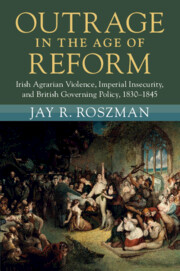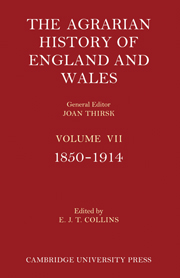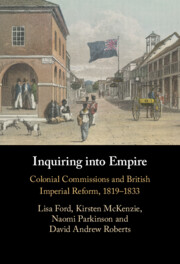Outrage in the Age of Reform
In the 1830s, as Britain navigated political reform to stave off instability and social unrest, Ireland became increasingly influential in determining British politics. This book is the first to chart the importance that Irish agrarian violence – known as 'outrages' – played in shaping how the 'decade of reform' unfolded. It argues that while Whig politicians attempted to incorporate Ireland fully into the political union to address longstanding grievances, Conservative politicians and media outlets focused on Irish outrages to stymie political change. Jay R. Roszman brings to light the ways that a wing of the Conservative party, including many Anglo-Irish, put Irish violence into a wider imperial framework, stressing how outrages threatened the Union and with it the wider empire. Using underutilised sources, the book also reassesses how Irish people interpreted 'everyday' agrarian violence in pre-Famine society, suggesting that many people perpetuated outrages to assert popularly conceived notions of justice against the imposition of British sovereignty.
- Integrates Ireland into narrative of British politics, showing how Irish issues were not an addendum but at the centre of British political change in the 1830s
- Connects views about Ireland, and the threat of violence, to wider concerns about imperial violence across the British Empire, demonstrating Ireland's connection to other colonised spaces
- Underscores how Irish agrarian violence was understood by British and Irish elites as a system that undermined the sovereignty of the state, leading to its systematic surveillance, measurement, and suppression
Reviews & endorsements
'[A] rich and important contribution to existing scholarship.' Ashley M. Morin, Journal of British Studies
Product details
No date availableAdobe eBook Reader
9781009195805
0 pages
Table of Contents
- Introduction
- 1. Governing Ireland in the age of reform
- 2. 'Outrage' in Ireland: Agrarian violence and Irish claims to counter-sovereignty
- 3. 'Justice to Ireland': Whigs and Ireland, 1835–1840
- 4. Protestant mobilisation and the spectre of colonial violence
- 5. Ireland and the Tory imagination
- Conclusion.






